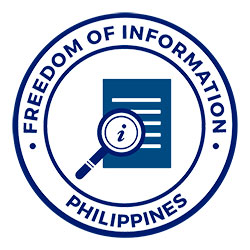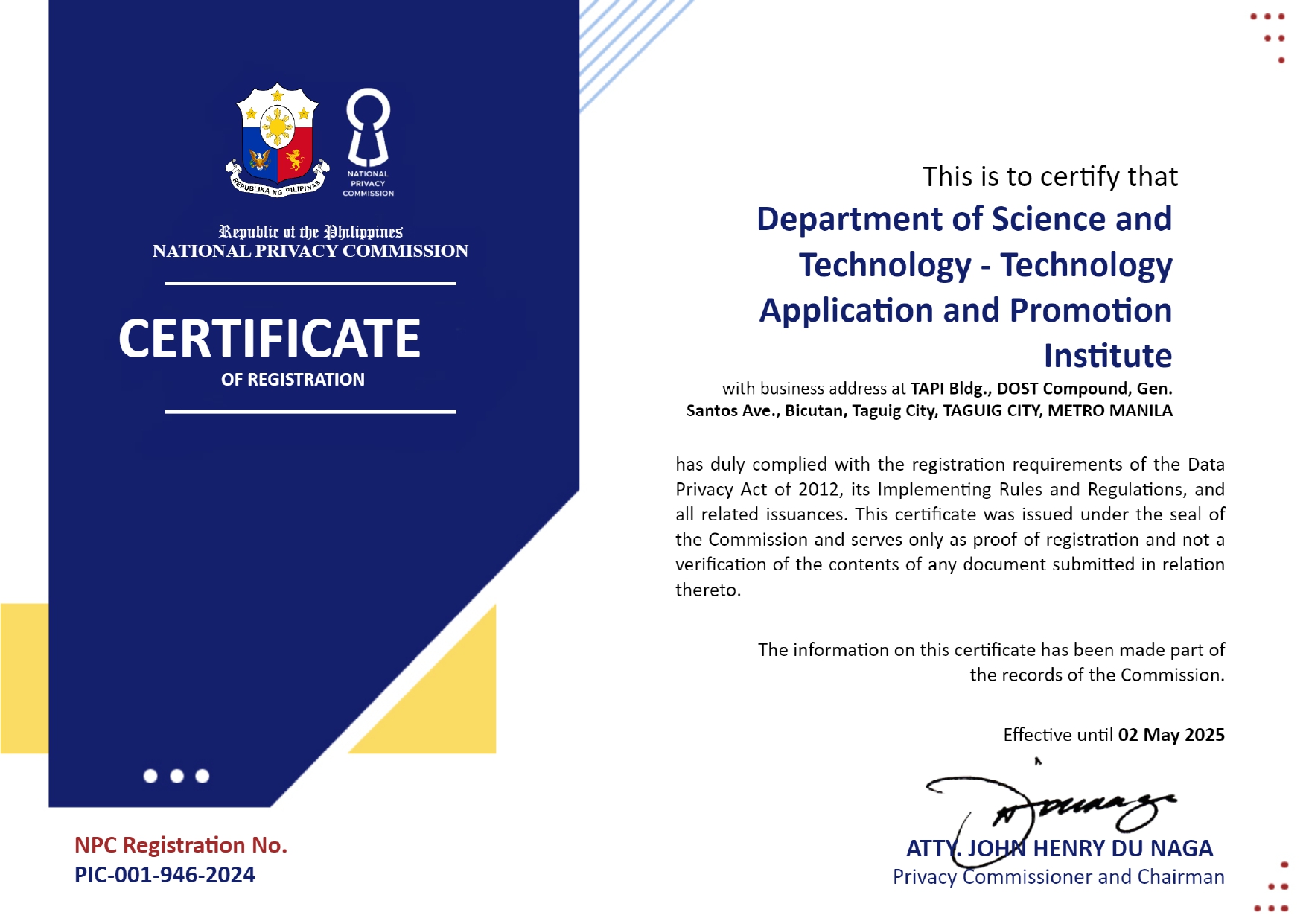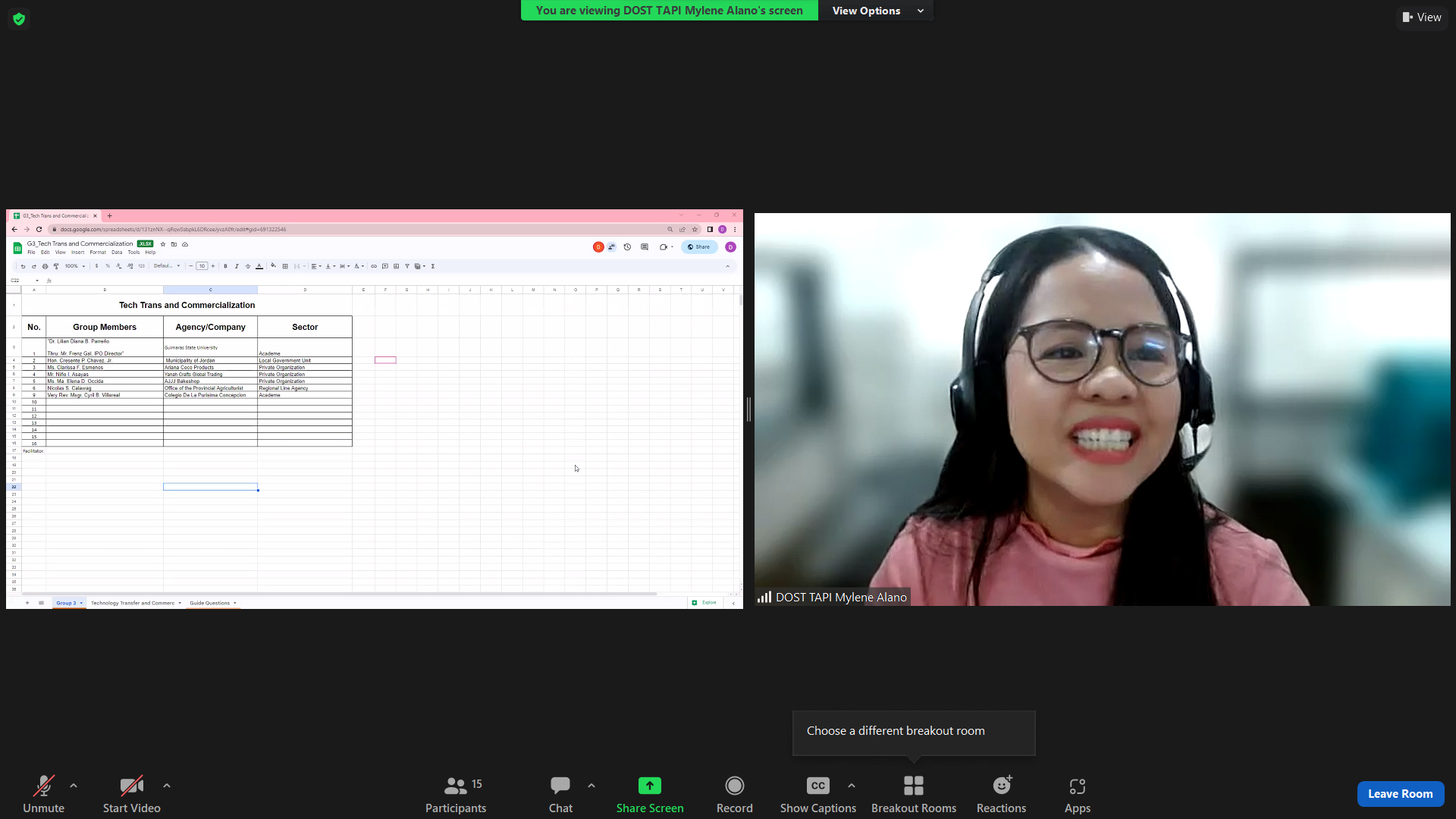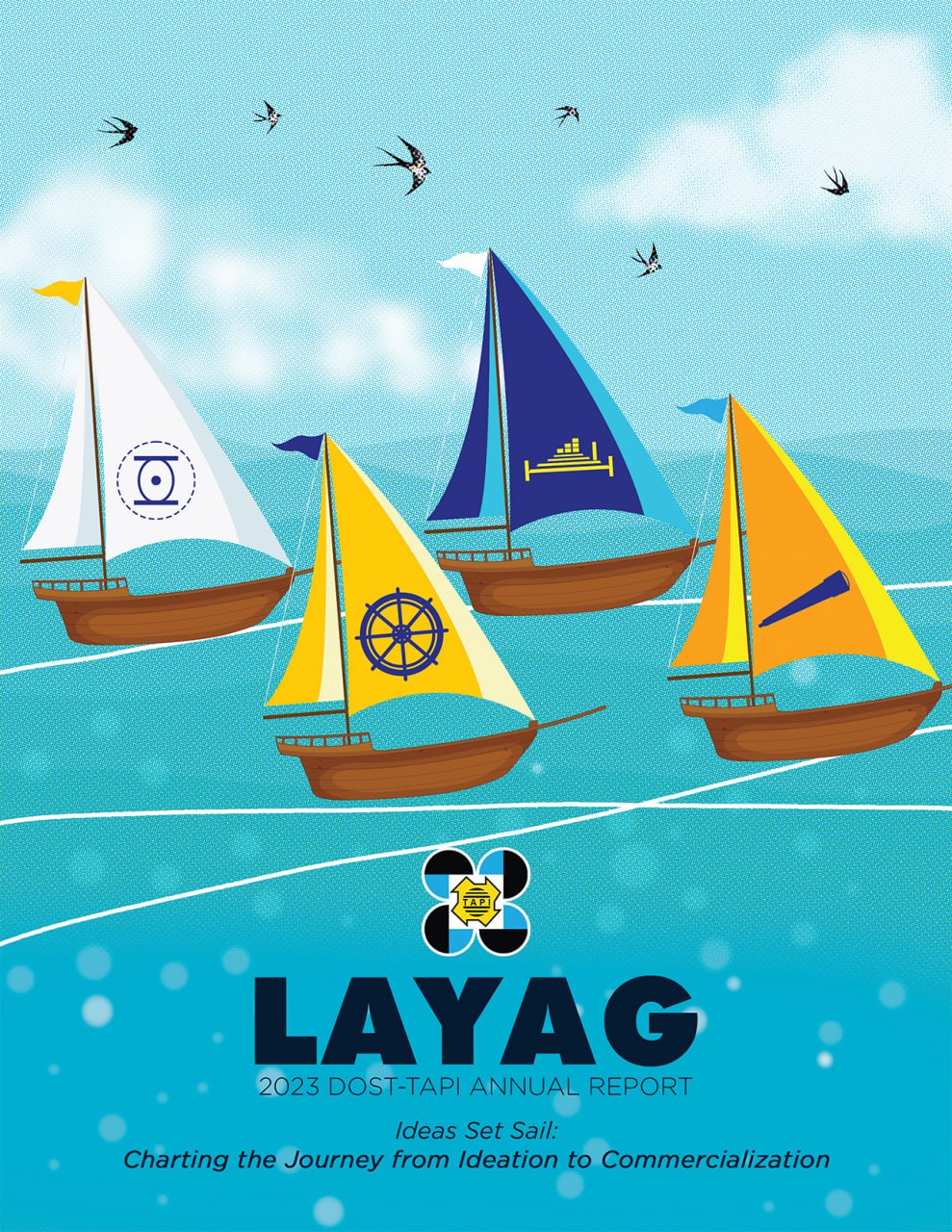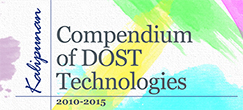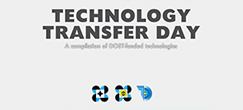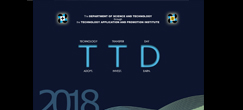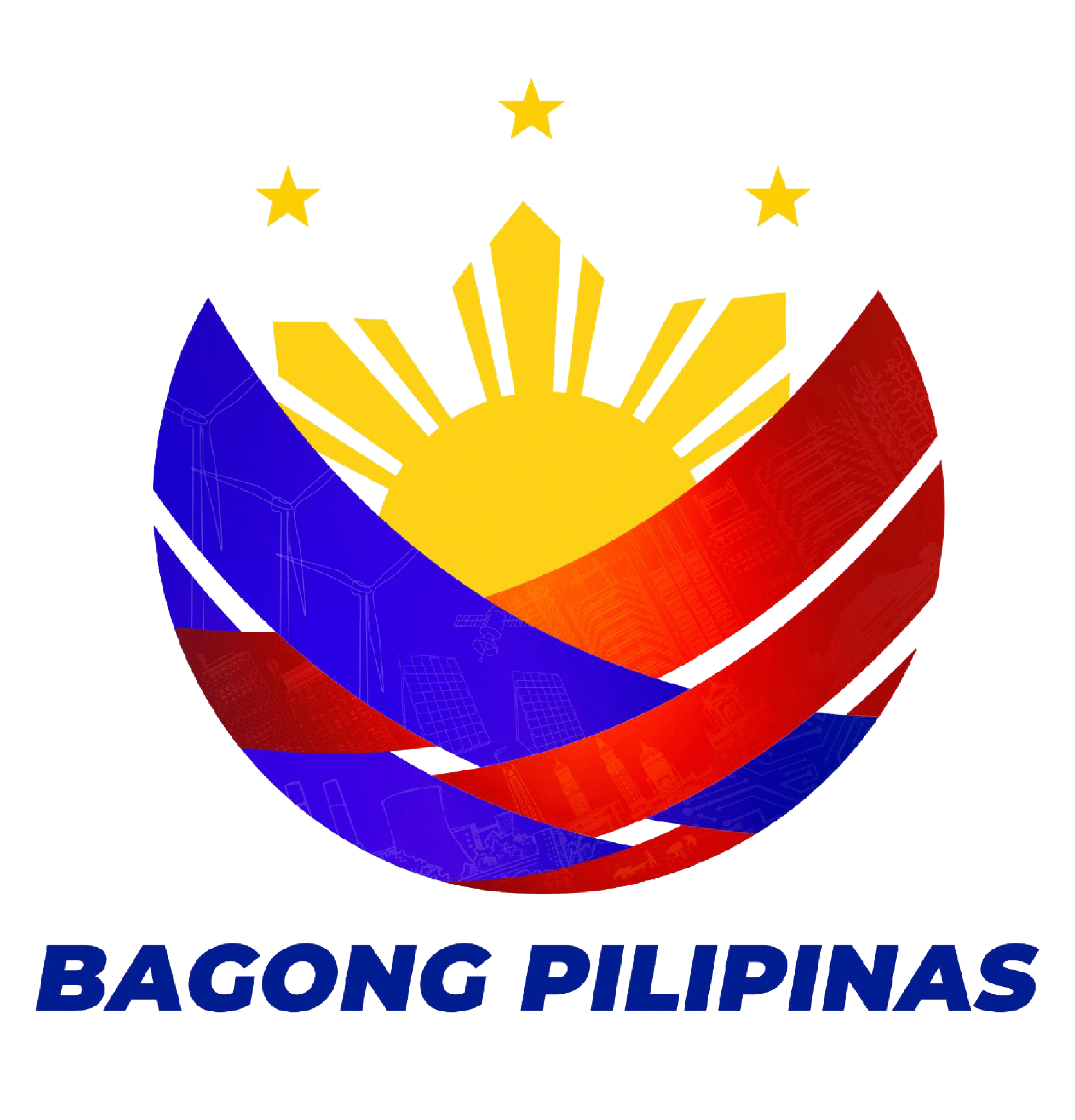- Details
By Sharah Ibrahim
The Department of Science and Technology - Technology Application and Promotion Institute (DOST-TAPI) recently conducted a mid-year performance review and monitoring of its 2023 performance and outlined its future plans last July 18, 2023.
The review covered a range of topics, including the status of internal and DBM-approved physical targets, Institutional 10-year Roadmap position, financial standing, and future expectations.
The process of the performance review was initiated with a message from the DOST-TAPI Director, Atty. Marion Ivy D. Decena. "Regarding the Institute's performance, the evaluation has been duly completed and submitted to the Secretary's Office," Atty. Decena stated. "I would like to announce that on the basis of that performance appraisal, it seemed that we have achieved our goal of 100% in terms of physical targets," she further added.
This statement from Atty. Decena was further validated by Ms. Janice W. Cornel, the Head of the Planning Unit. She reported that DOST-TAPI has demonstrated a strong physical performance for the first semester, aligning with DBM's output and outcome indicators. Furthermore, she provided a detailed overview of the met and ongoing implementation of targets as per the DOST-TAPI Roadmap.
Impressively, the first semester saw DOST-TAPI meet or exceed all of the DBM-approved targets. There was a 132% achievement in IP protection filing for local technologies in the Intellectual Property Office of the Philippines, a 120% accomplishment in commercialization and adoption by industry/community of technologies diffused supported, and an attainment of 106% in the number of pre-commercialization support provided for technologies, inventions, and innovations.
Furthermore, the Institute was able to achieve 125% from its targeted number of inventions, innovations, and technologies promoted and commercialized, accomplish 100% from the requests that were acted upon within three days, and a reach 115% from the number of technical advisory services rendered.
The Institute's financial performance was presented by Ms. Josephine Q. Reyes, the Budget Section Head. She reported that the budget allotment for CY 2023 is P177.6 Million and the obligated amount as of the first semester is P80.9 Million, leaving a balance of P96.7 Million or 54% of the total budget for the second semester. The actual disbursement was reported to be P69.6 million, achieving 66.07% for the first semester.
In terms of programmed amount in BED 1 (79.9 million) as compared to actual obligations (80.9 Million) for the first semester, the institute attained an obligation rate of 101%.
The review also included a reflection on the previous six months for the Institute to identify several concerns on some of its major processes and strategize for further improvement. A report on the Turnaround Time (TAT) of project proposals received was presented by the Citizens’ Charter Committee and possible streamlining strategies for the year were discussed. Also, the outputs from the Director's Hour, conducted with all divisions of DOST-TAPI which allowed the Director to identify and address issues and concerns within each division, were presented and conferred. Then, the Procurement Process Monitoring Team, the team created by the Director to oversee, guard and monitor the efficiency of the procurement process, reported their findings to the said process and presented their recommendations for its improvement.
Looking into the future, the review discussed Gender and Development (GAD) plans and activities, with a focus on integrating GAD initiatives into the existing DOST-TAPI programs for more effective attribution. The proposed budget and physical targets for 2024 based on the National Expenditure Program (NEP) were also presented, with a total budget of P186,090,000 projected for 2024.
Lastly, the Corporate Communications Unit (CCU) outlined strategies for corporate branding, with a five-year timeline for brand building, execution, consolidation, expansion, and optimization. The DOST-TAPI brand guide was also presented.
In a message from DOST-TAPI Director, Atty. Marion Ivy D. Decena, she emphasized the importance of the mid-year performance review and the need for continuous improvement. She congratulated everyone for the hard work done in the past six months and expressed her hope for maintaining the same level of performance in the future. She also announced the initiation of the Philippine Governance System (PGS) and the continuation of the ISO QMS, which she believes will help the Institute achieve its long-term goals.
The mid-year review provided a comprehensive overview of DOST-TAPI's performance and future plans, demonstrating the Institute's commitment to continuous improvement and strategic planning. The impressive increase in key performance indicators underscore the Institute's successful efforts in promoting and supporting local technologies and innovations.
- Details
By Sharah Ibrahim
The Department of Science and Technology- Technology Application and Promotion Institute (DOST-TAPI) concluded the final leg of its Stakeholder's Forum last July 14, via Zoom for Region VI.
The forum, focused on tech transfer and commercialization in Region VI, successfully effectively garnered valuable inputs from various stakeholder groups such as academicians, technology generators, local government units (LGUs), and representatives from the private sector.
Director Arecio A. Casing, Jr. CESO IV, RDC VI Vice Chairperson, and NEDA VIA Regional Director, shared an overview of the country's technology transfer and commercialization landscape.
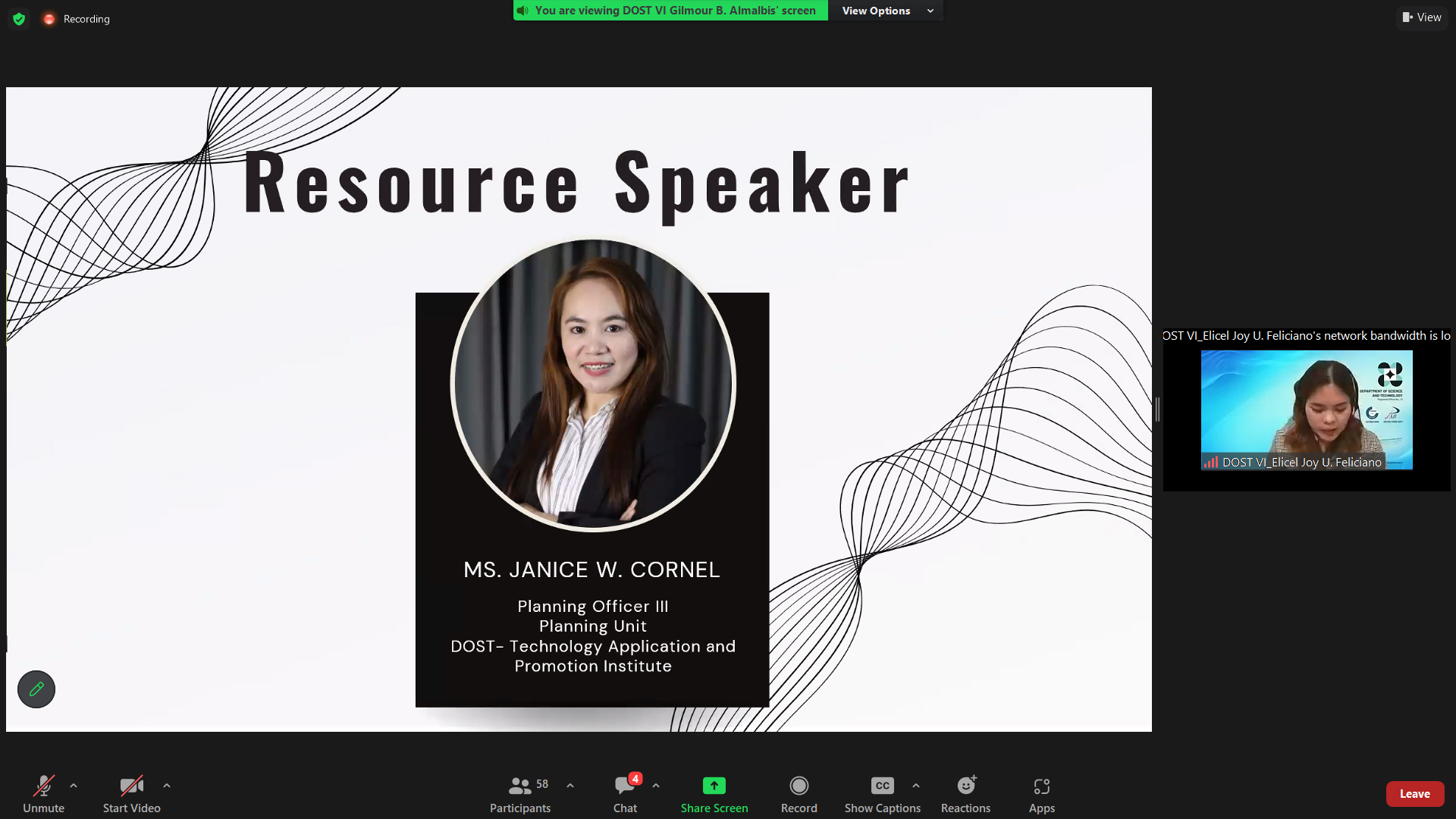
Just as in the previous forums, Ms. Janice W. Cornel, Planning Officer III of DOST-TAPI, presented the agency's initiatives on technology innovation, development, transfer, and commercialization.
The forum emphasized four key areas: Ideation and Protection, Technology Development, Technology Transfer and Commercialization, and Promotion and Utilization. Each area yielded critical issues, concerns, and suggested programs for future consideration.
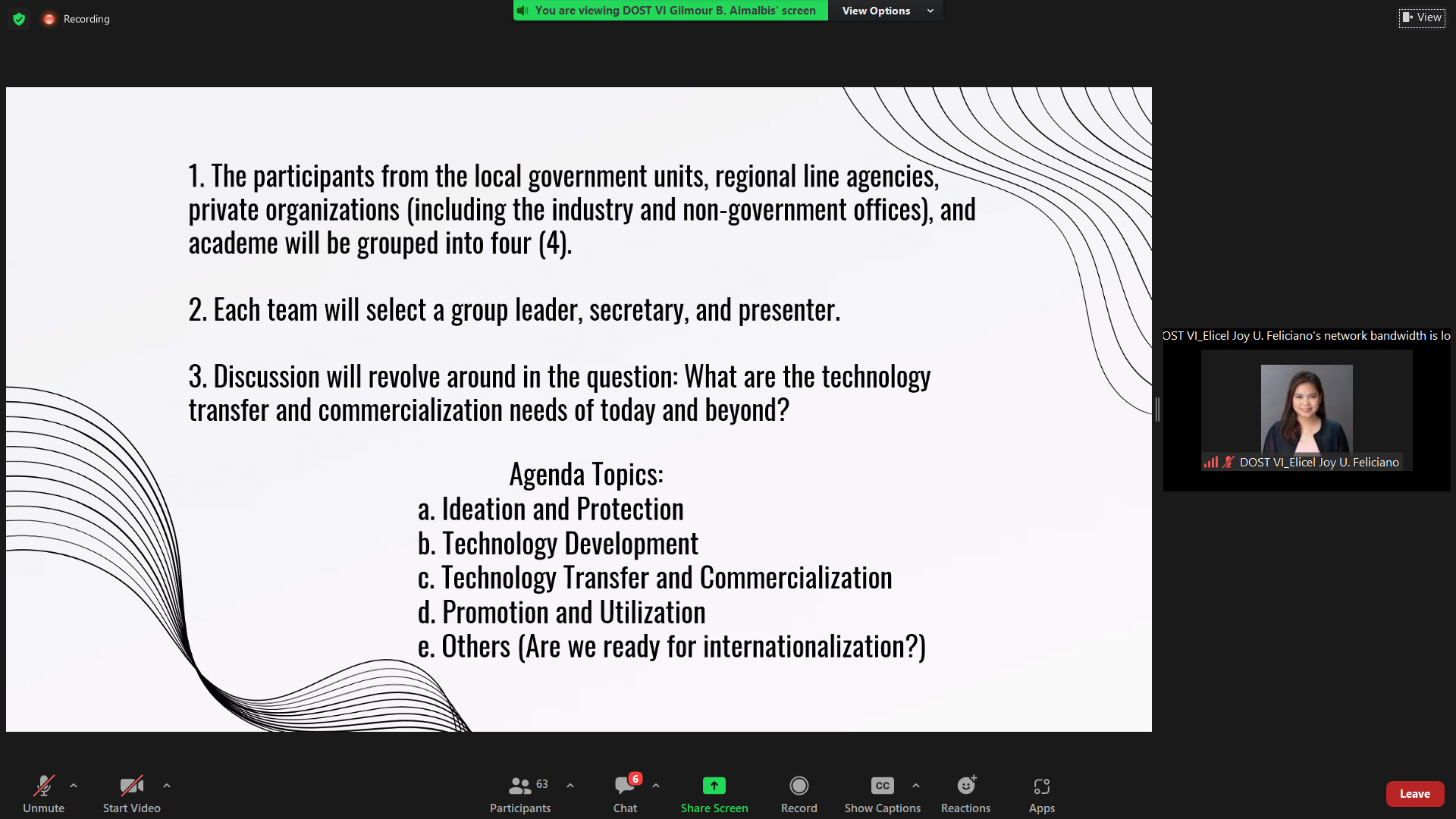
Ideation and Protection:
Participants from the academe and line agencies proposed various programs to tackle concerns related to the mismatch of developed tech to industry needs, limited expertise in IP protection, and limited funding for R&D. Suggestions included reverse pitching, institutionalizing an industry council, conducting stakeholder forums and training on IP and patent searching, promoting research collaboration, and facilitating capability building for research commercialization. They also expressed the need for online system support, grant support, and clearer guidelines on IP ownership and royalty sharing.
Technology Development:
Technology generators and the academe raised concerns about the scaling up and manufacturing process, IP management, time and priority management, funding and regulatory compliance. They suggested programs such as providing assistance in prototyping, offering funding for emerging technologies, upgrading facilities for production and tech dev, providing personnel for tech development, and free or affordable tech development and commercialization trainings. They also emphasized the importance of collaboration among LGUs, industries, private entities, and RDIs.
Local Government Units (LGUs):
LGUs called for stronger collaboration with SUCs and RDIs and recommended programs for R&D and tech transfer.
Private Sector (Industry/MSMEs):
The private sector highlighted the need for financial assistance for purchasing needed facilities or instruments for product development, and for upgrading machine/technology. They also pointed out the need for more programs/activities for R&D and tech transfer.
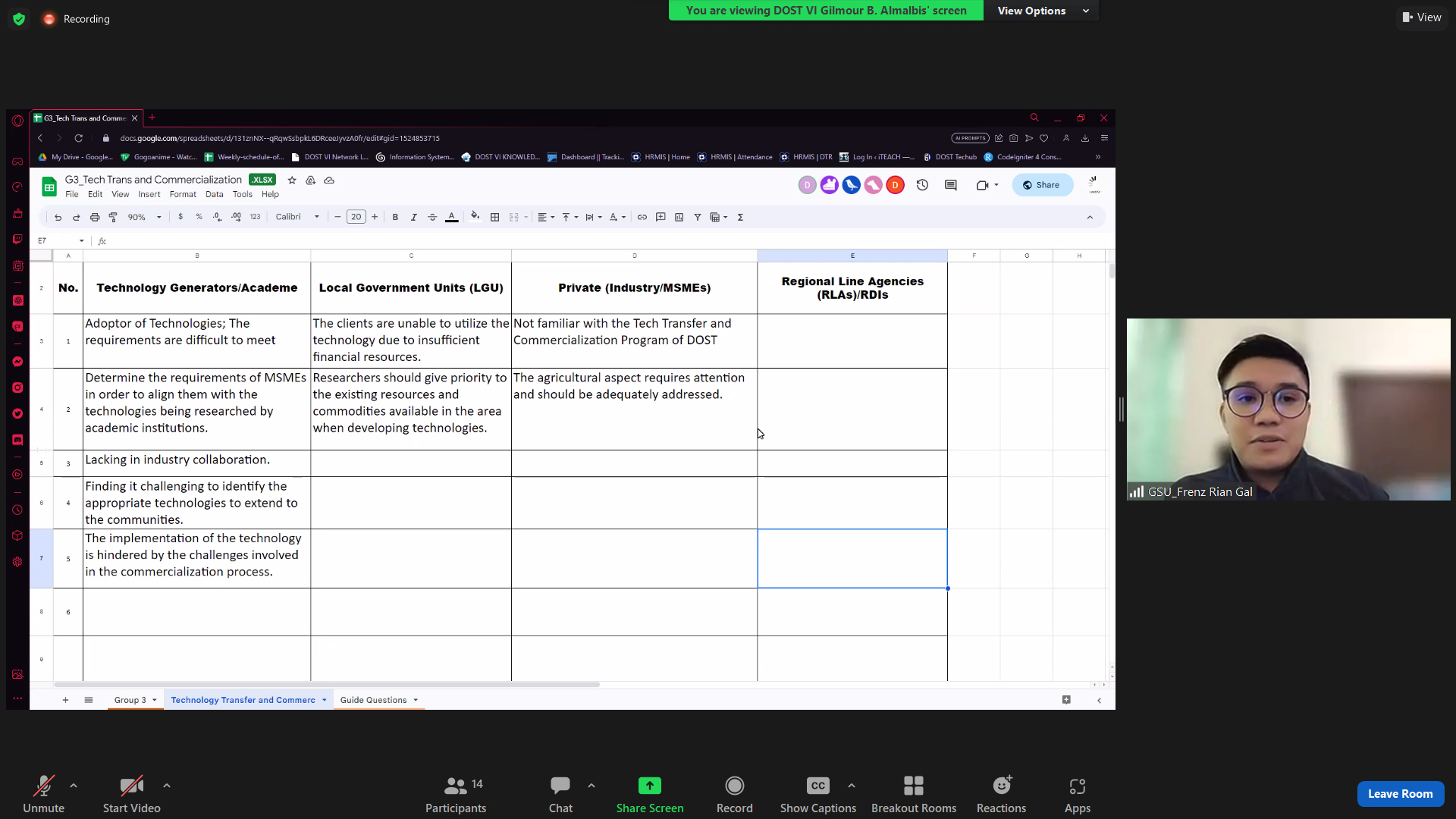
Technology Transfer and Commercialization:
The academe discussed challenges in tech adoption, aligning research with MSME requirements, industry collaboration, identifying appropriate technologies for communities, and dealing with the complexities of the commercialization process. They identified weaknesses in the business and marketing aspects.
Promotion and Utilization:
Both LGUs and the academe expressed concerns about limited knowledge on IP and technology adoption. The LGUs mentioned difficulty in gathering data on IP and innovation, the lack of offices handling IP or technology adoption, challenges in logistics, and issues with internet connectivity. The academe suggested having policies governing generated technologies, capacity development for introducing marketing/business side, matching of new technologies to community needs, and pilot technologies to business partners. The private sector raised issues on the registration of spin-off companies.
2nd Stakeholders' Forum on Technology Transfer and Commercialization
The Stakeholder's Forum aims to consolidate ideas and insights to set the Philippine agenda on technology transfer and commercialization. The forum focused on four specific objectives including defining the country’s current status on tech transfer and commercialization, identifying priority areas, proposing programs and projects that align with these priorities, and locating potential partners for sustained collaboration.
The stakeholders' collective vision, perspectives, and innovative ideas brought to light during this forum will serve as an invaluable resource for DOST-TAPI. The insights provided are expected to pave the way for significant advancements in the technology transfer and commercialization landscape of the Philippines.


